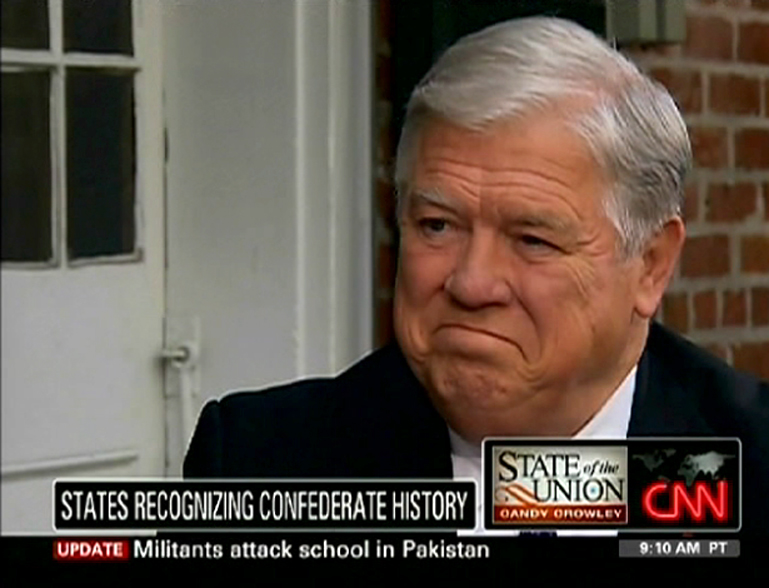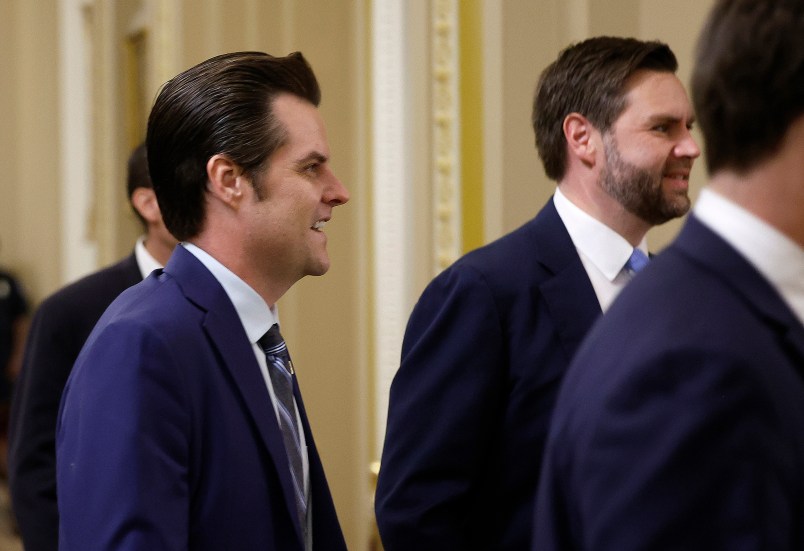When Virginia Gov. Bob McDonnell (R) faced criticism over declaring April “Confederate History Month” without even mentioning slavery, Mississippi Gov. Haley Barbour (R) stepped up to defend him, dismissing the uproar as being over “something that doesn’t amount to diddly.”
But Barbour hasn’t been so forthcoming with his own proclamation. Every year, Barbour signs a proclamation declaring April “Confederate Heritage Month.” But he hasn’t released the document to the press — not to the Associated Press, not to Think Progress and not, despite multiple requests, to TPM.
But the Sons of Confederate Veterans, which lobbies for such proclamations and is specifically cited in Barbour’s, sent TPM a copy, which you can see here.
“WHEREAS, it is important for all Americans to reflect upon our nation’s past, to gain insight from our mistakes and successes, and to come to a full understanding that the lessons learned yesterday and today will carry us through tomorrow,” it reads in part.
It’s not the first time Barbour has had neo-confederate flirtations.
As a recent Newsweek profile describes, Barbour has a Confederate flag, signed by Confederate President Jefferson Davis, hanging on the wall of his office.
In 2001, the state voted in a referendum to maintain the Mississippi flag, despite an effort to remove the Confederate “stars and bars” from the upper left corner. When Barbour ran for governor in 2002, he wore the state flag on his lapel, and was attacked for it by Democrats. He fought back and went after his opponent, Gov. Ronnie Musgrove, for his failed efforts to change the flag. Barbour won the election.
Then in 2006, Barbour hired one of the leaders of the keep-the-flag movement to his re-election campaign. The campaign paid Earl Faggert, whose PAC had fought to keep the Confederate emblem on the flag, as a field worker. Faggert was also a past commander-in-chief of the Sons of Confederate Veterans.
And today, he shrugs off the criticism as a “nit” and “insignificant.” As he told CNN this week, he believes some are “trying to make a big deal out of something that doesn’t amount to diddly.”
Those people include the Mississippi chapter of the NAACP, which told the Associated Press they consider such proclamations “treason.” Mississippi has the highest percentage of black residents in the union.
As Matt Yglesias points out, it’s worth noting that Mississippi seceded from the union in 1861, the second state to do so, specifically and primarily because of slavery. From the declaration:
“Our position is thoroughly identified with the institution of slavery– the greatest material interest of the world,” it reads. “Its labor supplies the product which constitutes by far the largest and most important portions of commerce of the earth. These products are peculiar to the climate verging on the tropical regions, and by an imperious law of nature, none but the black race can bear exposure to the tropical sun.”should









